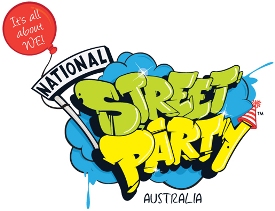The whole ‘love yourself’ thing has never sat quite right with me. I understand what people are saying when they suggest we should love ourselves but it often feels a bit self-indulgent to me. You’re probably a lot smarter than me and have figured out the balance.
I’ve heard a lot of Christians promoting the idea of loving ourselves over the years. They base their thoughts on passages like the following where Jesus is asked which is the greatest commandment.
…. But when the Pharisees heard that he had silenced the Sadducees, they gathered together. And one of them, a lawyer, asked him a question to test him. “Teacher, which is the great commandment in the Law?” And he said to him, “You shall love the Lord your God with all your heart and with all your soul and with all your mind. This is the great and first commandment. And a second is like it: You shall love your neighbor as yourself. On these two commandments depend all the Law and the Prophets.” – Matthew 22:34-40 (ESV)
The thinking goes that if we’re to love our neighbour as we love ourselves, we first have to love ourselves. What Jesus said presupposes that we love ourselves. I can’t argue with that but I still feel a bit uncomfortable.
So why do I have trouble with promoting the notion of loving ourselves?
Of course I love myself. Too much probably. I feed myself, look after myself, and think way too highly of myself and my needs a lot of the time.
For no one ever hated his own flesh, but nourishes and cherishes it, just as Christ does the church, because we are members of his body. – Ephesians 5:29,30 (ESV)
Maybe it’s the fact that I’ve seen many people use the concept of loving themselves simply as an opportunity for an unhealthy focus on their own needs and wants. When Jesus spoke about loving ourselves it was in the immediate context of loving others. He said we’re to ‘love our neighbours as ourselves’. Some people get the whole ‘love yourself’ bit but never advance to loving their neighbour.
Maybe I just need to change the way I think about why I should love myself.
I’ve recently been thinking about the airline safety spiel. As well as telling you about how to do up and undo your seatbelt and how count the rows to your nearest exit, they always stress that in the event of a sudden loss in cabin pressure, you should fit your own oxygen mask first before helping others. While I’ve seen others use that idea to talk generally about looking after yourself, I think there’s a subtle but important difference when we use the oxygen mask analogy.
There’s a sense of urgency in the airline mask thing.
Yes, you need to put your mask on first before helping someone else but in that moment, as the plane starts to shake and the pressure drops, when the masks fall from the ceiling of the aircraft, you take the action you need to take for yourself before immediately turning your attention to others. You don’t sit there adjusting the mask until it feels ‘just right’. You don’t have some ‘me time’ with your mask, you grab it, put it on, and then get on with the job of assisting those around you who are struggling.
If someone I loved was sitting next to me in an aircraft emergency I’d get my mask on as quickly as I could so that I’d be best prepared to help them. Even during the act of securing my own mask my thoughts would be about getting oxygen for the person in the seat next to me.
Some people certainly do try to help others without caring for their own needs to their own detriment. They manage to fumble around and get oxygen sorted for everyone else but they’re left gasping for breath. That’s not how it should work.
On the other hand, if we focus on ‘loving ourselves’ until we feel sufficiently ‘loved up’, we’ll spend more and more time looking out for number one.
It’s another one of those times in life where we need to find balance.
We should think well of ourselves without putting ourselves above others. We need to ensure our own oxygen supply so that we can serve others. We shouldn’t think too highly or too little of ourselves. Yes, we should love ourselves but love should never be self satisfying. Love should be bigger than that.
Do nothing from selfish ambition or conceit, but in humility count others more significant than yourselves. Let each of you look not only to his own interests, but also to the interests of others. – Philippians 2:3,4 (ESV)
I’d love to read your thoughts. Leave me a comment or two. Do you think I’m on the right track? Is it about balance? Let me know.
Do you think some of your friends would enjoy reading Self love and oxygen masks? Please use the buttons below to share the post. Thanks.




 Do you know who’s on the other side of your fence?
Do you know who’s on the other side of your fence? Do you remember watching episodes of the old Batman series when you were a kid? I loved seeing Batman and Robin zoom towards the bushes that would drop down allowing the batmobile to enter the secret batcave. No one around knew what went on behind the hedge.
Do you remember watching episodes of the old Batman series when you were a kid? I loved seeing Batman and Robin zoom towards the bushes that would drop down allowing the batmobile to enter the secret batcave. No one around knew what went on behind the hedge.